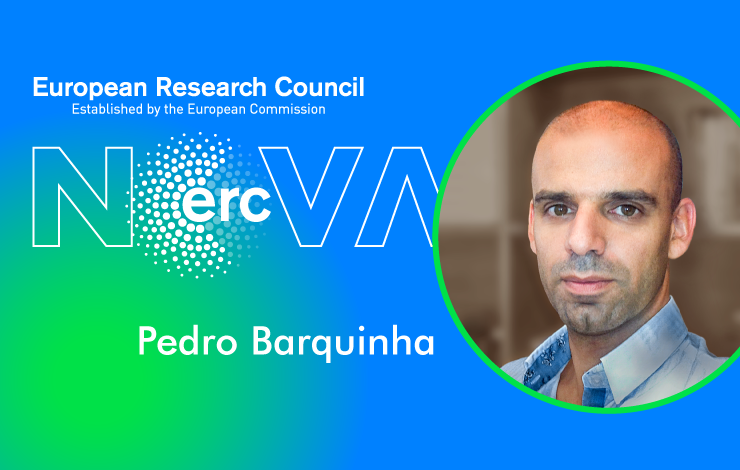23-05-2022

Pedro Barquinha, Professor at the Department of Material Science and Researcher at Cenimat at NOVA School of Science and Technology, has just been awarded the Proof of Concept grant from the European Research Council (ERC), the most reputable institution for granting funds for scientific and technological research in Europe.
With a grant worth €150,000 for each researcher and covering a variety of fields and research issues, this funding is part of the European Union's research and innovation programme, Horizon Europe.
Pedro Barquinha was one of the two Portuguese researchers to receive this funding, with the project "FLETRAD: Flexible and transparent platform based on oxide transistors for detection and readout of ionizing radiation", which aims to develop a detection platform completely flexible and transparent radiation.
Ionizing radiation poses well-known health risks but, if used in a controlled manner, can serve as the basis of relevant applications ranging from health to civil security. Whether it is the proper control of the dose received by patients in medical treatments or workers in hazardous radiation environments, or even for high resolution imaging devices - proper quantification of radiation doses is required.
FLETRAD, therefore, proposes the development of a platform that detects radiation in a completely flexible and transparent way, opening doors to an innovative market opportunity. This project employs the patented idea of oxide transistors as detectors of direct ionization radiation as well as the knowledge gained in the TREND project (ERC Starting Grant) focused on miniaturized oxide electronics using sustainable materials and processes.
This year's edition of the Proof of Concept grants included two competitions, with the winners of the first round already being announced in February, with FCT NOVA researchers Elvira Fortunato and Cecília Roque being distinguished. With the grant now awarded to Pedro Barquinha, the School thus accumulates 12 ERC grants, reinforcing its leadership position in the number of grants granted to its researchers.
The 55 projects now selected for the fellowships include researchers from the Netherlands (10), UK (7), Italy (6), Germany (5), Israel (5), Spain (4), France (5), Austria (3 ), Czech Republic (2), Finland (2), Portugal (2), Belgium (1), Turkey (1), Sweden (1), Romania (1) and Norway (1).